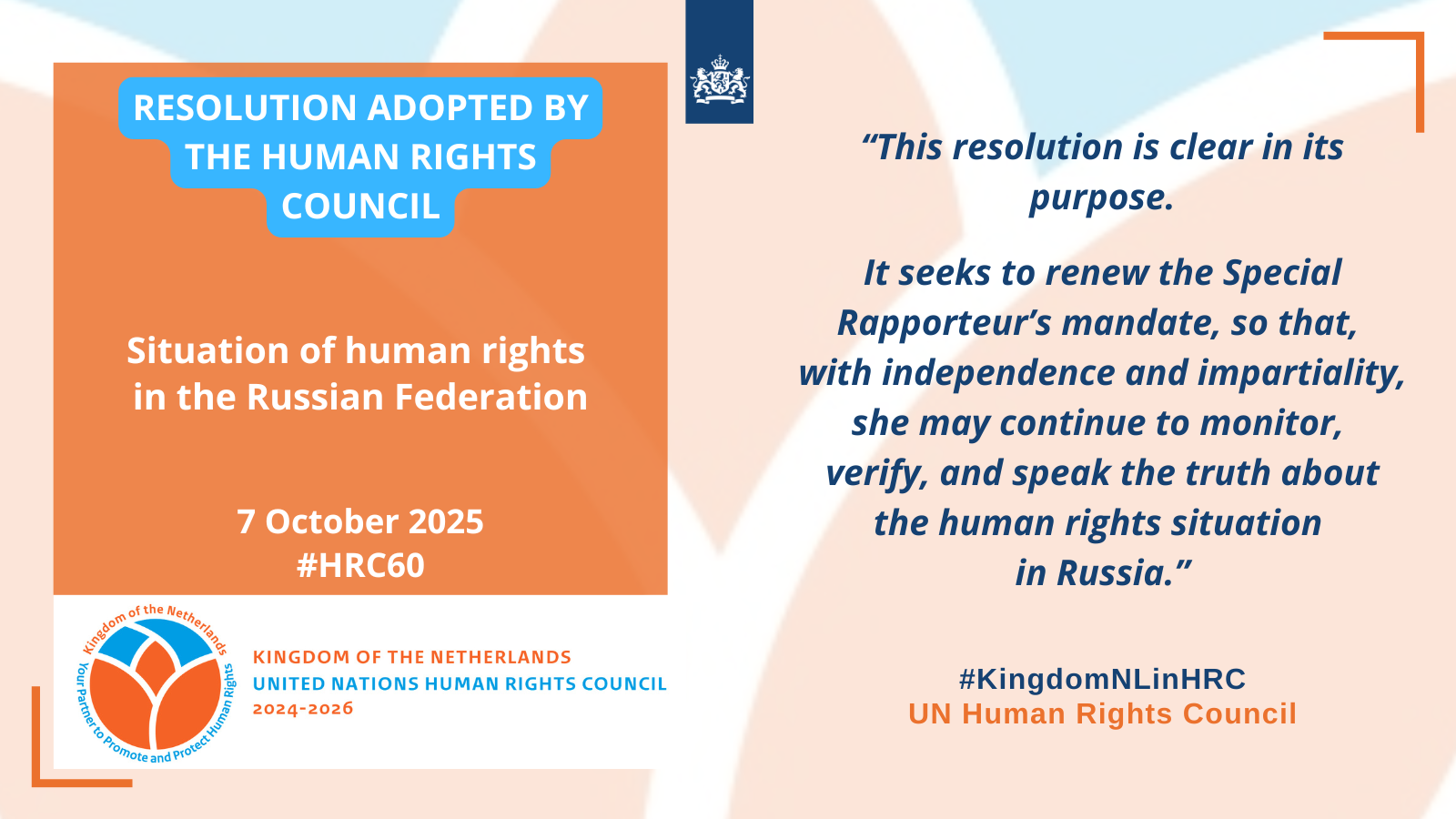Introduction for draft resolution L.23 ‘The situation of human rights in the Russian Federation’ - PR UN, WTO and other organisations Geneva
Introduction for draft resolution L.23 ‘The situation of human rights in the Russian Federation’
Statement on behalf of the BENELUX and the Core Group consisting of 26 European countries, delivered by H.E. Ambassador Erica Schouten, Permanent Representative, Permanent Representation of the Kingdom of the Netherlands to the UN in Geneva.
Mr President,
It is my honour to introduce draft resolution L.23, entitled
‘Situation of human rights in the Russian Federation’, on behalf of
the BENELUX penholders and the Core Group consisting of 26 European
countries.
This resolution is clear in its purpose.
It calls on the Russian authorities to uphold the fundamental freedoms
enshrined in the country’s Constitution and in the international human
rights treaties they voluntarily ratified.
Obligations they
are now blatantly disregarding.
As the UN Special Rapporteur
has documented, the past year has seen a seismic decline in the human
rights situation in the country.
Russian authorities have
pursued a deliberate strategy to wipe out any dissent through
intensified censorship, politically motivated prosecutions and the
expansion of repressive legislation on “foreign agents” and
“undesirables”.
Russia has become the world’s third-largest
jailer of journalists.
Torture and ill-treatment in the
Russian Federation, including of those arbitrarily detained, remain
widespread and systematic, as reported by the Special Rapporteur.
And the damning threshold of over 1,000 political prisoners has been
crossed.
The draft resolution in front of us seeks to renew
the Special Rapporteur’s mandate, so that, with independence and
impartiality, she may continue to monitor, verify, and speak the truth
about the human rights situation in Russia.
Mr President, fellow Ambassadors,
This Council is guided by constructive dialogue and cooperation.
Yet, the country concerned has refused to engage.
They did not participate in the Interactive Dialogue, where they had the opportunity to share their views on the report.
They did not engage in the two open informal consultations that the Core Group organized to discuss the draft resolution despite having been provided with the draft text in advance of the rest of the UN membership.
They did not respond to the Core Group’s invitation to constructive engagement on the text.
They do not engage with the Special Rapporteur and other Special Procedures mandate holders who work with her.
More alarming still, they are retaliating against those who do cooperate with UN human rights mechanisms, as documented by the UN Secretary General’s report on reprisals.
These actions manifestly contradict the principles of cooperation and genuine dialogue of this Council.
At the same time, this Council has a duty: to ‘address situations of violations of human rights, including gross and systemic violations’ as mandated by GA resolution 60/251.
We, therefore, urge all members to support this resolution and reaffirm that no State is above scrutiny.
Thank you Mr. President

